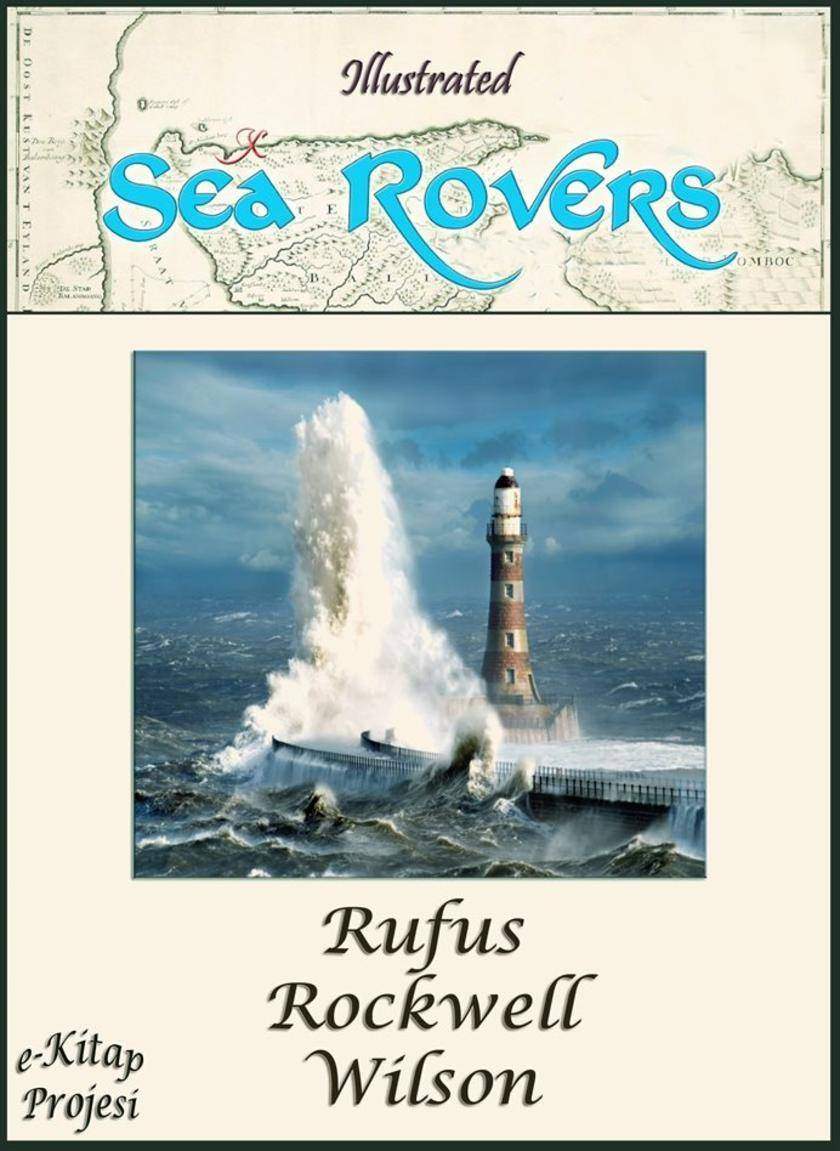
Sea Rovers
¥23.30
Diego Rodríguez de Silva y Velázquez (June 6, 1599 – August 6, 1660) was a Spanish painter who was the leading artist in the court of King Philip IV and one of the most important painters of the Spanish Golden Age. He was an individualistic artist of the contemporary Baroque period, important as a portrait artist. In addition to numerous renditions of scenes of historical and cultural significance, he painted scores of portraits of the Spanish royal family, other notable European figures, and commoners, culminating in the production of his masterpiece Las Meninas (1656). From the first quarter of the nineteenth century, Velázquez's artwork was a model for the realist and impressionist painters, in particular ?douard Manet. Since that time, famous modern artists, including Pablo Picasso, Salvador Dalí and Francis Bacon, have paid tribute to Velázquez by recreating several of his most famous works. Early lifeBorn in Seville, Andalusia, Spain, Diego, the first child of Jo?o Rodrigues da Silva and Jerónima Velázquez, was baptized at the church of St Peter in Seville on Sunday, June 6, 1599. This christening must have followed the baby's birth by no more than a few weeks, or perhaps only a few days. Velázquez's paternal grandparents, Diego da Silva and Maria Rodrigues, had moved to Seville from their native Porto, Portugal decades earlier. As for Jo?o Rodrigues da Silva and his wife, both were born in Seville, and were married, also at the church of St Peter, on December 28, 1597. They came from the lesser nobility and were accorded the privileges generally enjoyed by the gentry. Velázquez was educated by his parents to fear God and, intended for a learned profession, received good training in languages and philosophy. Influenced by many artists he showed an early gift for art; consequently, he began to study under Francisco de Herrera, a vigorous painter who disregarded the Italian influence of the early Seville school. Velázquez remained with him for one year. It was probably from Herrera that he learned to use brushes with long bristles. After leaving Herrera's studio when he was 12 years old, Velázquez began to serve as an apprentice under Francisco Pacheco, an artist and teacher in Seville. Though considered a generally dull, undistinguished painter, Pacheco sometimes expressed a simple, direct realism in contradiction to the style of Raphael that he was taught. Velázquez remained in Pacheco's school for five years, studying proportion and perspective and witnessing the trends in the literary and artistic circles of Seville.To Madrid (early period) By the early 1620s, his position and reputation were assured in Seville. On April 23, 1618, Velázquez married Juana Pacheco (June 1, 1602 – August 10, 1660), the daughter of his teacher. She bore him two daughters—his only known family. The elder, Francisca de Silva Velázquez y Pacheco (1619–1658), married painter Juan Bautista Martínez del Mazo at the Church of Santiago in Madrid on August 21, 1633; the younger, Ignacia de Silva Velázquez y Pacheco, born in 1621, died in infancy. Velázquez produced notable works during this time. Known for his compositions of amusing genre scenes (also called bodegones), such as Old Woman Frying Eggs, his sacred subjects include Adoración de los Reyes (1619, The Adoration of the Magi), and Jesús y los peregrinos de Emaús (1626, Christ and the Pilgrims of Emmaus), both of which begin to express his more pointed and careful realism.
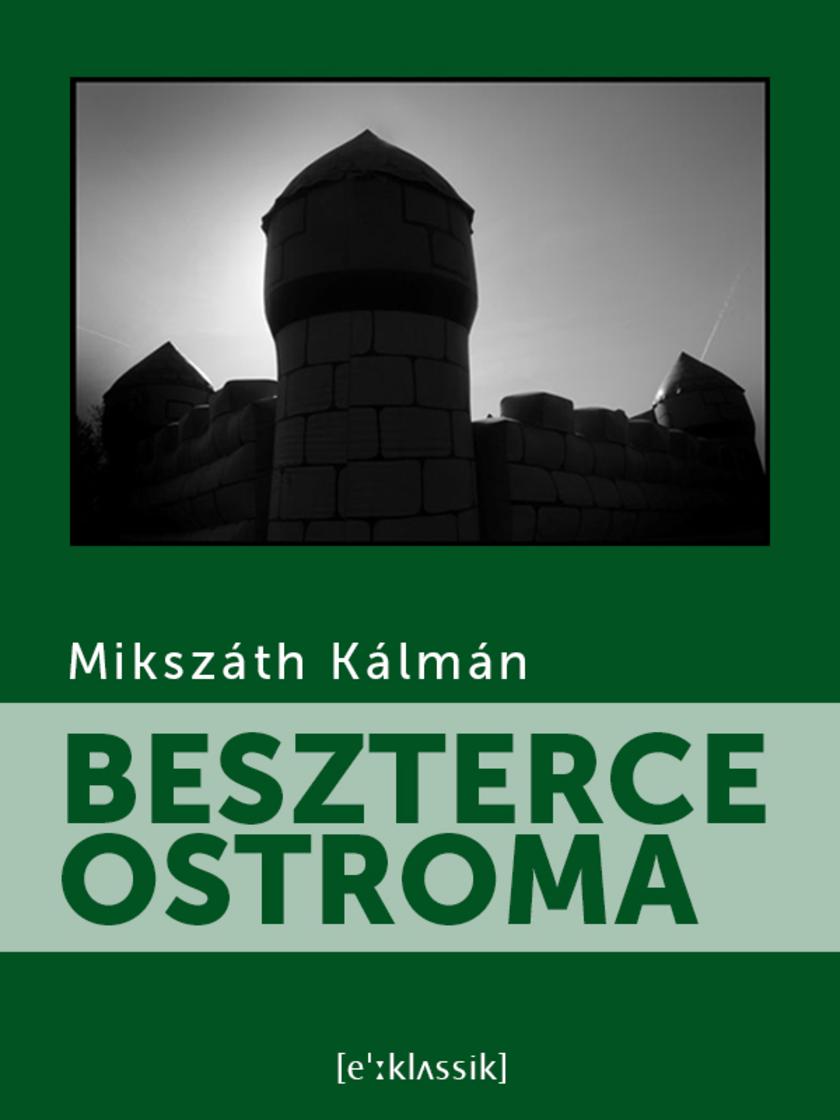
Beszterce ostroma
¥23.30
Rejtély, amelyet másfél száz éve próbálnak írók, irodalomt?rténészek, színházi szakemberek, esztéták, filozófusok megfejteni. Mese? ?rgirus királyfi és Tündér Ilona csodásan valószer?tlen t?rténete számtalan változatban létezik a magyar népmesekincsben, s olasz k?zvetít? forrásokon át g?r?g, s?t egyiptomi gy?kerekig nyúlik vissza az aranyalmát term? fa s a két szerelmes t?rténete. Szerelmi románc? Nem fontos a kor, a táj, a t?rténelmi háttér, csak az érzelmeiben egymásba gabalyodott két ember – itt és most: Csongor és Tünde – lángolása, viharzása, minden eléjük tornyosuló akadályt leromboló akarása, szerelmi szárnyalása. Színdarab? Karakteres, jó szerepek – ?rd?g?k, boszorkányok, b?lcsek, ledérek – forgataga zegzugos cselekmény, váratlan fordulatok, lehet?ség mindenféle színpadi csoda semmi nem korlátozva megvalósítására: sok alakra bomló, egy személybe olvadó boszorkány, leveg?ben r?pk?d?, láthatatlanná váló ?rd?gfiak, f?ld mélyér?l szemünk láttára kiemelked?, fényárban úszó tündérpalota. Minden pillanatban tátva maradhat a szánk. Filozófiai traktátus? ?letutak: Kalmáré a kincs, Fejedelemé a hatalom, Tudósé a b?lcsesség; Csongoré a szerelem. A kincs elpereg, a hatalom elkopik, a tudás semmivé porlad. A szerelem ?r?k. Drámai k?ltemény? ?jfélt?l éjfélig élünk: hajnalodik, felragyog az ég, dél van, alkonyodik, beesteledik, már f?lénk borul az éjszaka. Reményekkel telten, harcra készen kezdjük hajnalban, küszk?dünk reggel, boldogok vagyunk délben, szorongunk alkonyatkor, s?tétedéskor belenyugszunk az elmúlásba. De másnap újra f?lkel a nap. V?r?smarty Mihály 1830-ban fejezte be m?vét, a cím alá azt írta: színjáték ?t felvonásban. Már csak boldogan sajgó, rejtve rejtett szomorú emlék szívében reménytelen szerelme, Perczel Etelka. Mindennapi életében legf?képpen arra büszke, hogy sok kínnal keletkezett nagy m?vét, a Zalán futását a várva várt nemzeti eposzként ünneplik. Tagja az éppen szület? Magyar Tudományos Akadémiának, a legismertebb, legfontosabb szépirodalmi és m?vészeti lapok ?dolgozótársa”, szívét melenget? jóérzés: Széchenyi István a barátja. Igaz, a pénztárcája t?bbnyire lapos, gyakran kínosan lapos, de ismert és népszer? ember. Harminc éves. Férfi. Kincse nincs, hatalomra nem vágyik, a tudásról azt gondolja: valójában senki nem tudja, mennyit ér s mire jó. De Csongor boldog, amikor megpillantja Tündét, boldog, amikor át?leli, boldog, amikor elveszíti, mert hiszi, tudja: nem ?r?kre veszítette el. Küzd, harcol, verekszik: keresi a boldogságot. S boldog, amikor embert próbáló kalandok után végre megtalálja Tündét, s f?ldi létükben ?r?kre ?sszeforrnak. Csongor és Tünde számára a szerelem a kincs, a hatalom, a tudás. El nem veszíthet? kincs, ?r?kre er?t adó hatalom, b?lcsességgé párlódott tudás. ?gy lesznek halandók halhatatlanok. ?s másnap újra f?lkel a nap.

Livraria: Como Gerenciar e Obter Lucro Vendendo Livros
¥23.30
Livraria: Como Gerenciar e Obter Lucro Vendendo Livros
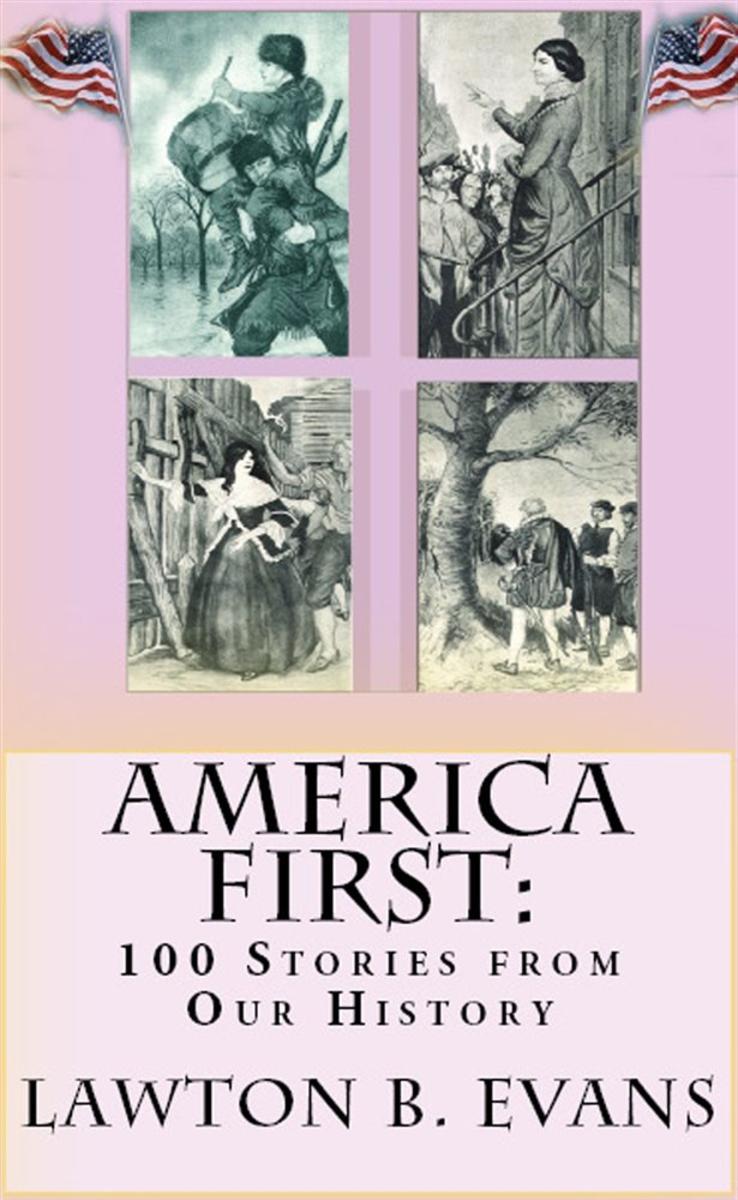
America First: —100 Stories from Our History—
¥23.54
WHEN children advance beyond the nursery age, no story is so wonderful as a true story. Fiction to them is never as appealing as fact. I have often been faced with the inquiry: whether or not a story is a true one. The look of gratification, when told that "it actually happened," was most satisfying to me as a story-teller.??The nearer a story is to the life and traditions of the child, the more eagerly it is attended. True stories about our own people, about our neighbors and friends, and about our own country at large, are more interesting than true stories of remote places and people. We naturally are interested in our own affairs, and the nearer they are to us the greater the interest we feel.??That history is just a long, thrilling story of the trials and triumphs of pioneers and patriots is well known to those who have had to do with the teaching of history to youthful minds. That the dry recital of political and governmental history does not interest children is also well known. History should be made vital, vibrant, and personal if we expect children to be stirred by its study.?To gratify the love of children for the dramatic and picturesque, to satisfy them with stories that are true, and to make them familiar with the great characters in the history of their own country, is the purpose of this volume.??It is hoped that through appeal to youthful love of adventure, this collection of stories, covering the entire range of American history, will stimulate the ambition and strengthen the patriotism of those young citizens whose education has been the constant concern of the author for many years.

Rihanna Quiz Book
¥24.43
Are you a Rihanna fan? Do you know the lyrics to all of her songs? Can you name her albums? From releasing her debut album at the age of 17 to becoming one of the best selling artists of all time, Rihanna is one of the biggest success stories in recent pop history. But how much do you really know about your favourite star? Find out in this fascinating quiz book. Where did Rihanna grow up? How did she get started in the music business? What was the name of the person who discovered her? The answers to all of these questions and more can be found in this book. Brim full of interesting facts that cover all aspects of the multi-talented singer-songwriter's life, from her early successes to chart topping hits including many personal details such as her nickname, favourite colour and the names of her best friends, you are certain to learn something new about the international singing sensation in The Rihanna Quiz Book. There is only one Rihanna and this is the must-have quiz book for all of her fans.
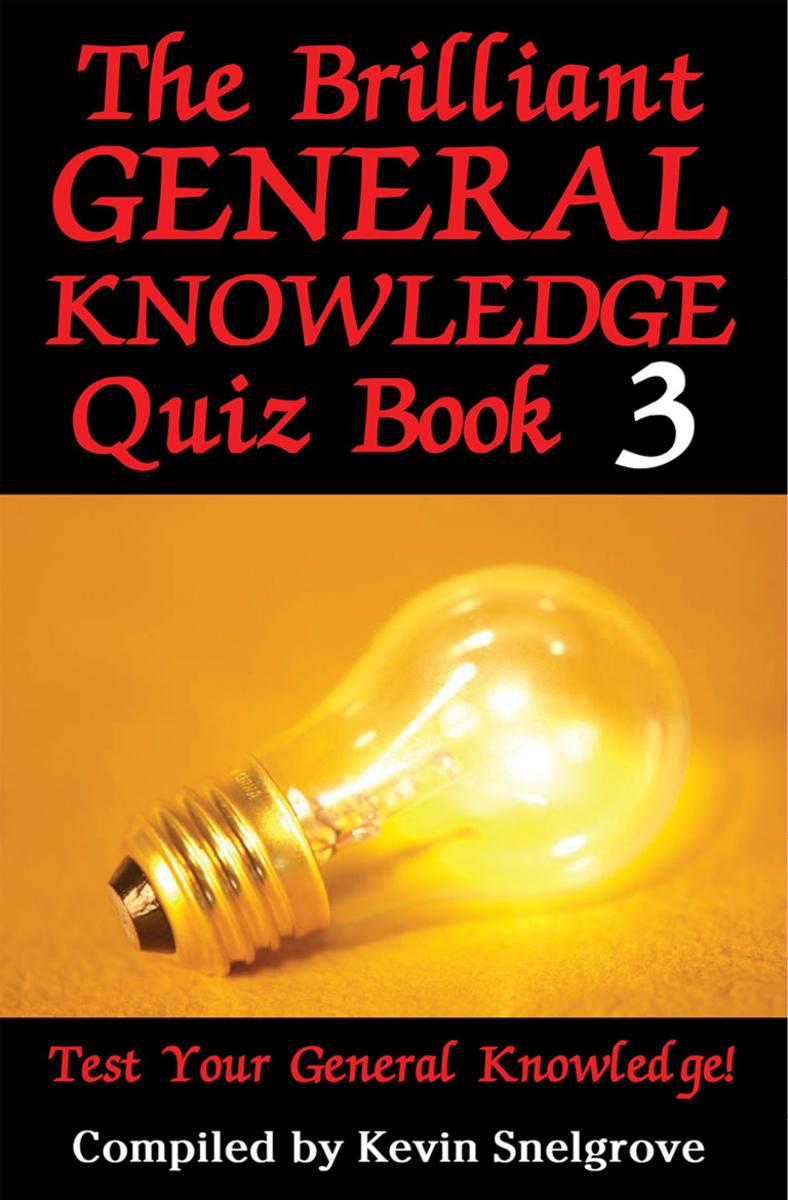
Brilliant General Knowledge Quiz Book 3
¥24.43
In what year did Concorde 001 first take off from Toulouse? What did the African country of Zaire change its name to in 1997? What popular sweet was invented by Frank Fleer in 1906? If you would like to know the answers to these brain-teasers and more like them take a look at The Brilliant General Knowledge Quiz Book.Find out how much you know about everyday things and the world we live in with the 100 testing questions in this book. Full of interesting facts and covering a range of topics including sport, history, geography, science, films and celebrities, this book provides a fun and easy way to learn. Whether you want to help the kids with their homework, challenge your friends or set the questions for the next pub quiz, this book is just all you need to improve your general knowledge. So if you have always wanted to know who invented the World Wide Web or the number of players in a water polo team this is the book for you.
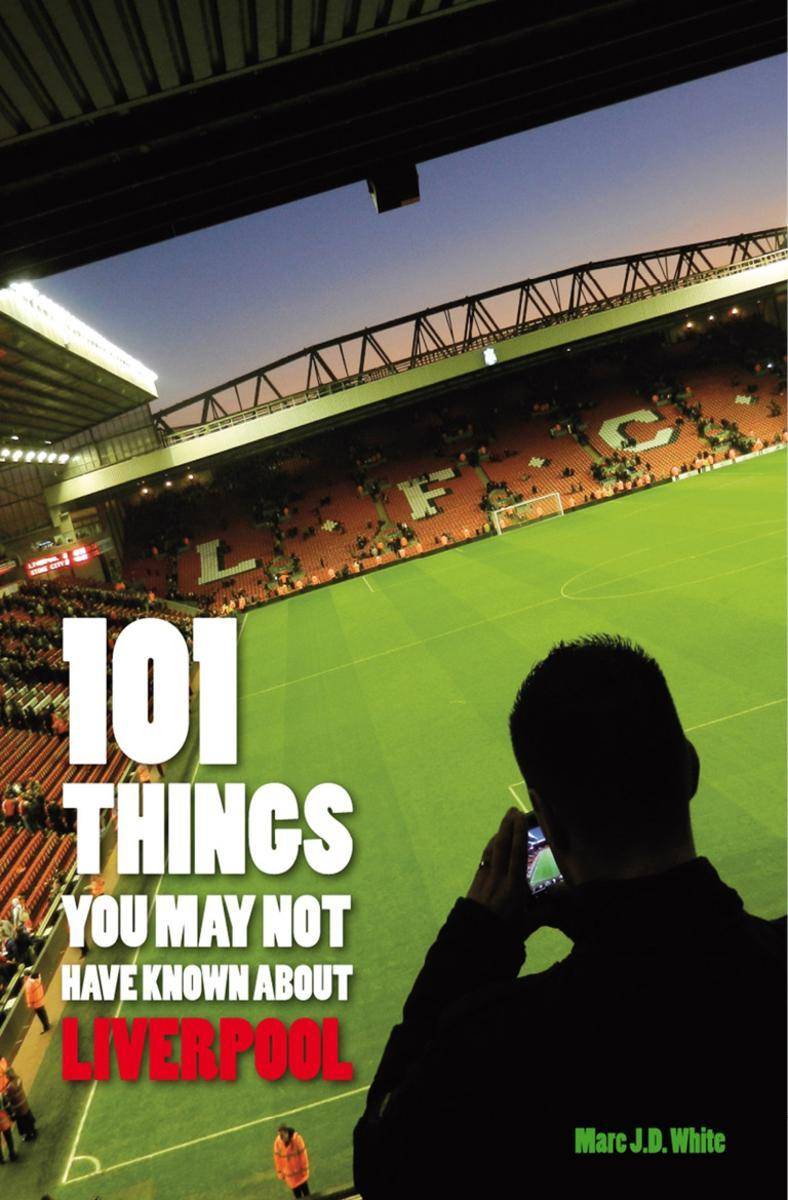
101 Things You May Not Have Known About Liverpool
¥24.43
Brief Description: Liverpool FC is one of England's most popular football teams with an army of loyal supporters and a long and successful history but how much information have you picked up about the club through the years? If you are a fan of the Reds or would like to find out more about them 101 Things You Might Not Know About Liverpool will tell you everything you ever wanted to know.How many players have scored over 100 goals for Liverpool? What five companies have been the club's kit sponsors? How many Liverpool players have captained England? The answers can all be found in this book together with lots more fascinating facts about Liverpool FC.This gem of a book will tell you about club records and history, famous players and managers, memorable wins, draws and losses and all those golden moments from Liverpool's glorious past. This is a must-have book for Liverpool fans of all ages and anyone with an interest in English Premier League football.
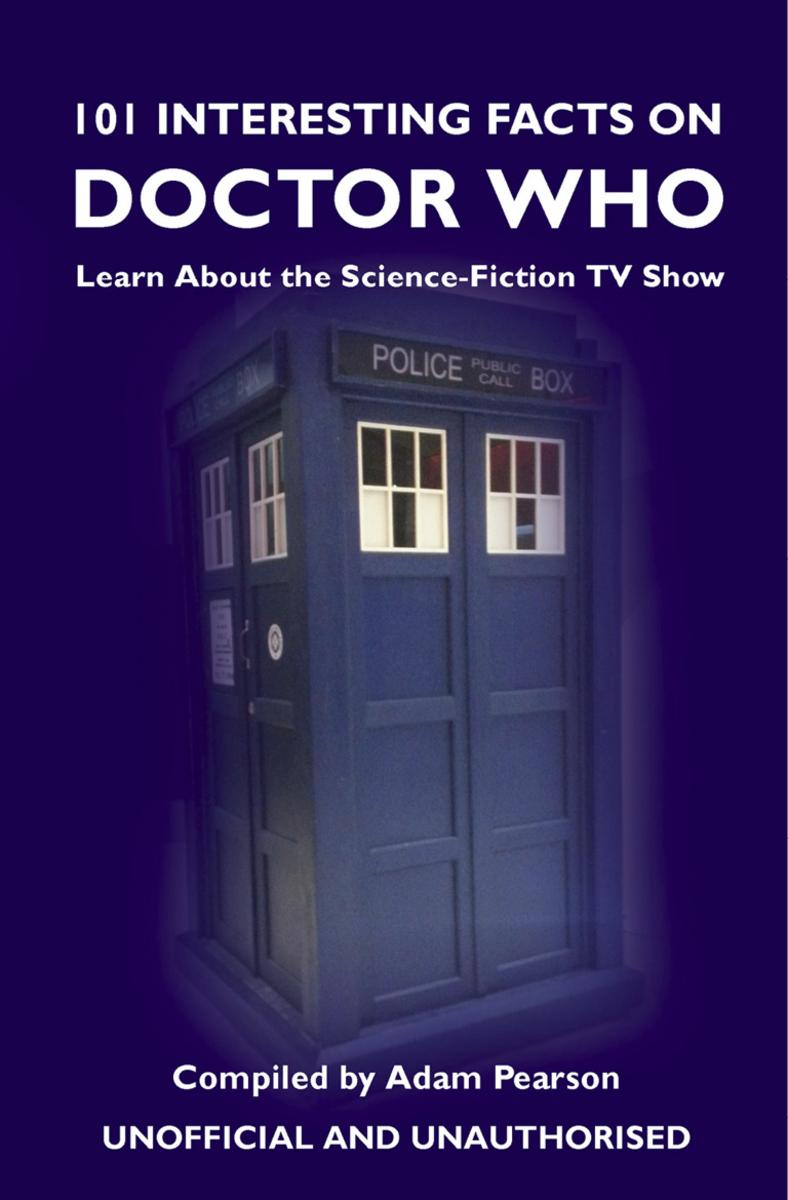
101 Interesting Facts on Doctor Who
¥24.43
Are you a Doctor Who fan? Have you followed the series through the years? Can you remember the names of all the past 'Doctors' and their companions? Would you like to know more about the iconic TV programme and its characters? If you answered yes to any of these questions, you won't want to be without 101 Interesting Facts on Doctor Who. Do you know where Dr Who's tomb is located or how many times The Doctor has regenerated inside the TARDIS? Which Doctor Who extra-terrestrials come from the plant Raxacoricicofallapatorius and what was The Doctor's companion, Romana's full name? Find out the answers, along with much more Doctor Who-related trivia, inside this new book. Discover fascinating facts about The Doctors, companions, their allies and enemies and the actors who bring them all to life, as well as information about the different storylines from programme past and present. This is a must-have book for all Doctor Who enthusiasts, whether you are a lifelong fan or one of the series many new followers.

Olly Murs Quiz Book
¥24.43
Are you a fan of Olly Murs? Do you enjoy listening to his music? Have you followed his journey from X Factor runner-up to award winning pop star and popular TV presenter. If you think you know all about Olly Murs or would like to find out more, The Olly Murs Quiz Book is for you.Which American male singer was Olly's role model whilst growing up? Which song did he sing when he auditioned for The X Factor in 2009? For how many weeks was Olly's song 'Thinking of Me' in the top 10 in the UK single charts? The answers to all these questions and more can be found in this exciting new quiz book.With 100 questions and fascinating facts all about Olly Murs, including many personal details, you are certain to learn something new about the man and his music. This is a must-have book for everyone who supported Olly during his time on The X Factor and all the many fans, old and young, who have watched him grow into a polished performer.
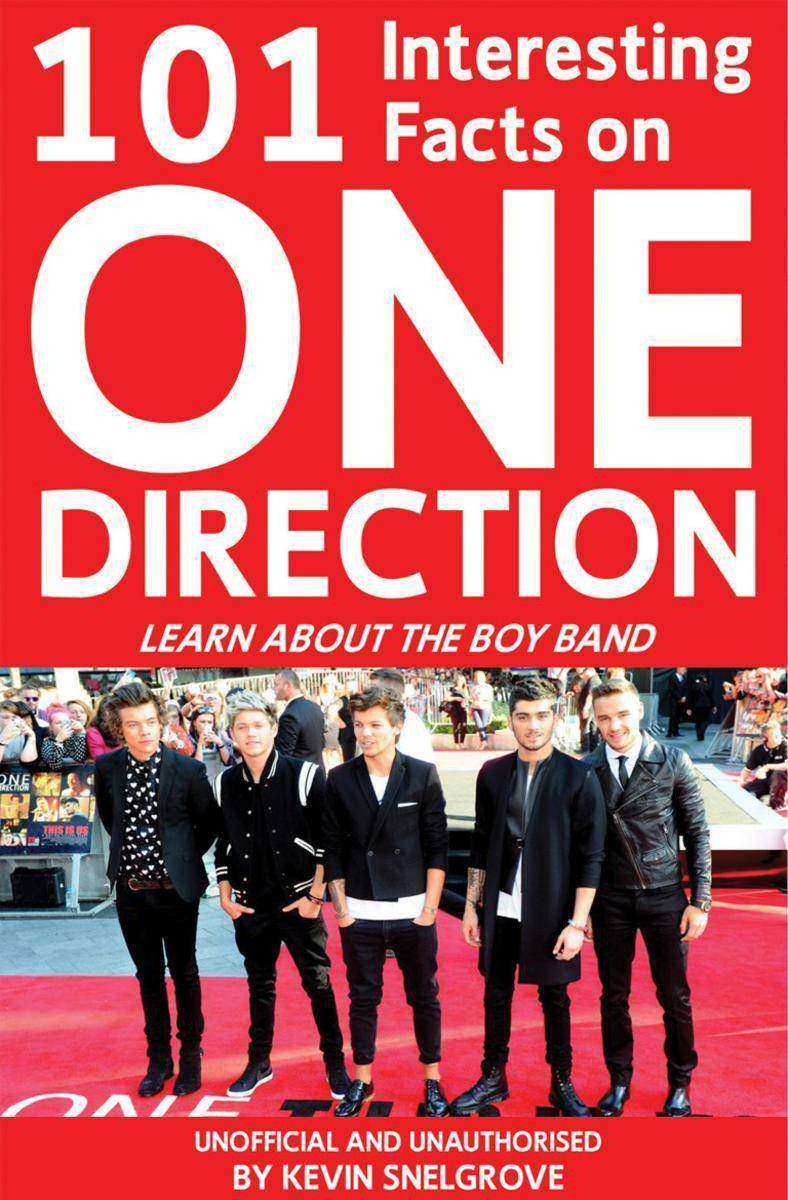
101 Interesting Facts on One Direction
¥24.43
Are you a fan of One Direction? Have you followed the popular boyband from their very first performance on The X Factor to international stardom? Would you like to find out more about the 1D boys? If so, you there is no better way to get to know your favourite band than with 101 Interesting Facts About One Direction. Which member of One Direction was the first to suggest the name for the band? When and where was the premiere of 1D's 2013 film This Is Us held? What new product did One Direction launch in September 2013? Find out the answers inside this book, full of up to the minute information all about 1D. The book includes many personal details about each of the band members as well as facts about their past and current projects.Make sure that you are up to date on all the latest 1D news with this new book. If you love One Direction, you won't want to be without it.
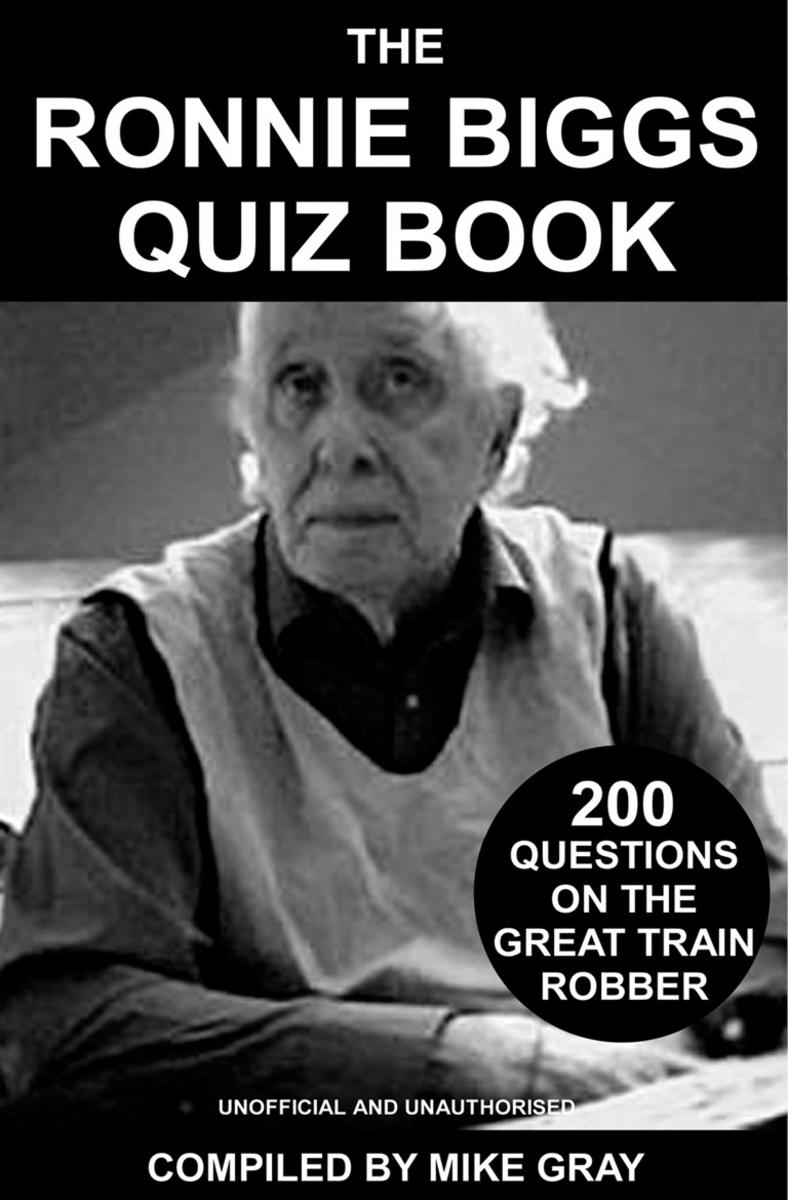
Ronnie Biggs Quiz Book
¥24.43
Ronnie Biggs is widely known for his part in the Great Train Robbery of 1963, his subsequent escape from prison, and notoriety as he lived as a fugitive around the globe with his family. Biggs' story has been well documented over the years but how much do you really know about the man behind the headlines? The Ronnie Biggs Quiz Book is your chance to gen up on all the facts. How old was Ronnie when he first appeared in court? On what date did Ronnie receive a 30 year sentence? Who was Ronnie's famous cellmate in Brazil? The answers to these questions and more can all be found in this fascinating new book. The 50th anniversary of the Great Train Robbery in 2013 has renewed interest in the gang who pulled of this audacious heist, and Ronnie Biggs in particular. Packed with information, this book will tell you everything you want to know about Ronnie Biggs, his life on the run and his part in one of the most talked about crimes of all time.
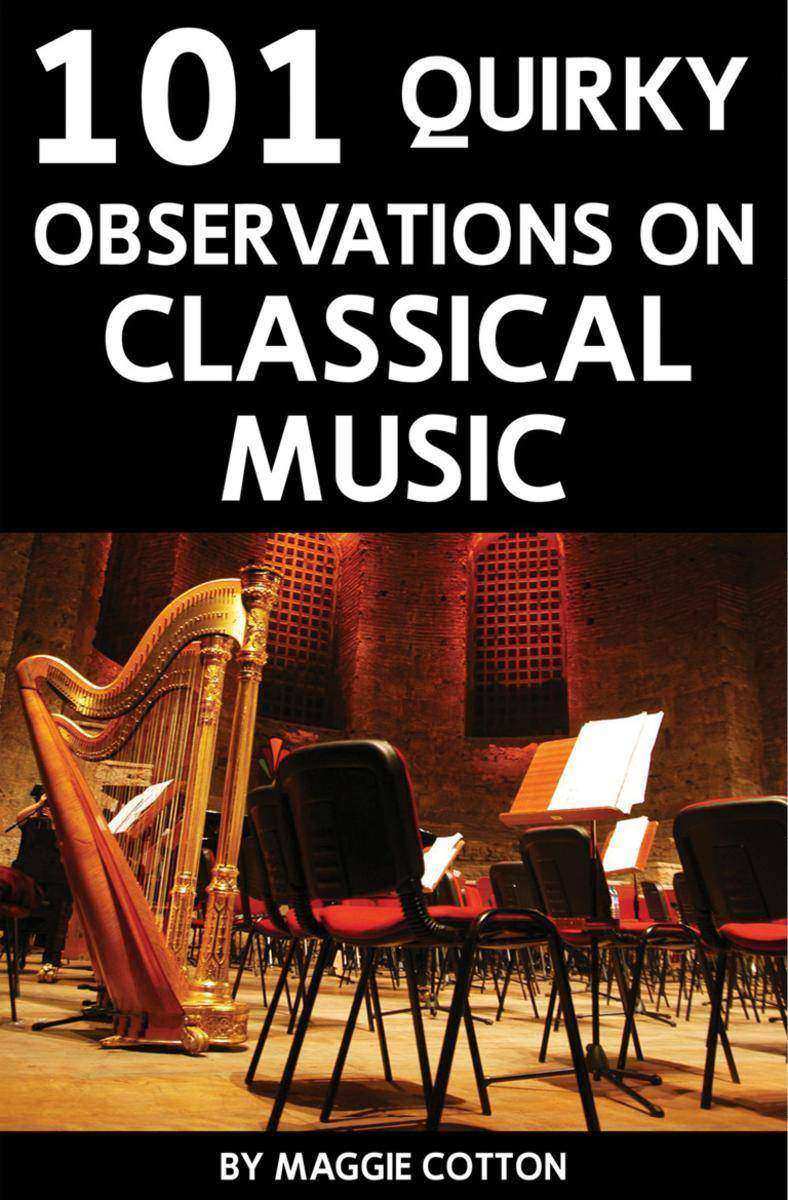
101 Quirky Observations on Classical Music
¥24.43
Are you a fan of classical music? Can you name all the well-known composers, conductors and the compositions they are associated with? Or perhaps, you would like to learn more about them? If so, you are certain to enjoy the quotes and musical miscellany in 101 Quirky Observations on Classical Music. Who defined music as 'a science that would have us laugh and sing and dance'? Which composer said, 'the trombones are too sacred for frequent use'? What writer requested, 'please do not shoot the pianist, he is doing his best'? The answers to these questions and similar brain-teasers can all be found inside this book. With sections on composers, compositions, instruments, orchestras and their musicians, conductors, soloists and opera as well as much more classical music related trivia, this book has something for everyone. This book is a great way to find out more about classical music and those who have been involved in writing, playing and performing it through the years. This is a must-have for anyone who listens to, plays or appreciates classical music.

Fifth Harmony Quiz Book
¥24.43
Are you a fan of American girl band Fifth Harmony? Have you followed the girls' success from auditioning as solo artists on The X Factor USA to the formation of Fifth Harmony and beyond? If you think you know all about Ally, Normani, Dinah, Lauren and Camilla, or would like to find out more about them, dip inside The Fifth Harmony Quiz Book. What song did Ally sing during her audition on The X Factor USA in 2012? When the group was formed by Simon Cowell and Demi Lovato, what was the band's original name? What award did Fifth Harmony win at the 'People's Choice Awards 2016'? The answers can all be found in this exciting new quiz book. With 100 questions and fascinating facts all about Fifth Harmony, including many personal details, you are certain to learn something new about this popular girl band. This is a must-have book for everyone who supported the girls on their The X Factor USA journey and who continue to enjoy the music of Fifth Harmony.

101 Interesting Facts on The Wanted
¥24.43
Do you like British boy band The Wanted? Have you followed their career from when they first formed in 2009 through to the current day? Would you like to find out more about Max, Siva, Jay, Tom and Nathan? If you answered yes to any of these questions, 101 Interesting Facts on The Wanted is certain to appeal to you. Do you know who is the oldest member of the group? Which artist did The Wanted support on tour in Brazil? What member of the band originally came up with the name, The Wanted? The answers can all be found inside this book, together with many more fascinating facts about your favourite band. Fun and informative, this book includes many personal details about the individual band members as well as up-to-date information about The Wanted's projects, past and present. Gen up on The Wanted so that you can impress your friends with your knowledge. If you are a fan of The Wanted, you won't want to be without this book.

Vamps Quiz Book
¥24.43
Are you a fan of British band The Vamps? Have you recently discovered this exciting new group or seen them perform as supporting artists? Can you name all the tracks on their debut album? If you think you know about Bradley, Connor, James and Tristan or would like to find out more, you are certain to enjoy The Vamps Quiz Book. Which boy band did The Vamps support in the UK and Ireland on their 'Word of Mouth' world tour? In what year was the band's debut single released? Which American actress and singer featured on the band's song 'Somebody to You'? The answers to these and similar questions can all be found inside. This book contains100 brain-teasers about The Vamps and includes singles, debut album, tour dates and awards as well as many personal details about each band member. If The Vamps is currently your favourite band you won't want to be without this quiz book detailing the early days of the band's promising career in pop.

5 Seconds of Summer Quiz Book
¥24.43
Are you a fan of 5 Seconds of Summer? Can you name all the band members? Have you followed the success of the Australian band from the early days through to supporting One Direction on tour and releasing their debut album? If you think you know all about the boys from down under, there is no better way to test your knowledge than with this fun quiz book. What was 5 Seconds of Summer originally going to be called? What record label produced the band's single 'Good Girls'? What award did 5 Seconds of Summer win at the 2014 Billboard Mid-Year Music Awards? The answers to these questions and more can all be found in this book. Packed with fun facts The 5 Seconds of Summer Quiz Book documents the band's journey to date. With 100 questions all about your favourite group, including songs, awards, tours and personal details about each individual member, this is the book fans of 5 Seconds of Summer won't want to be without.
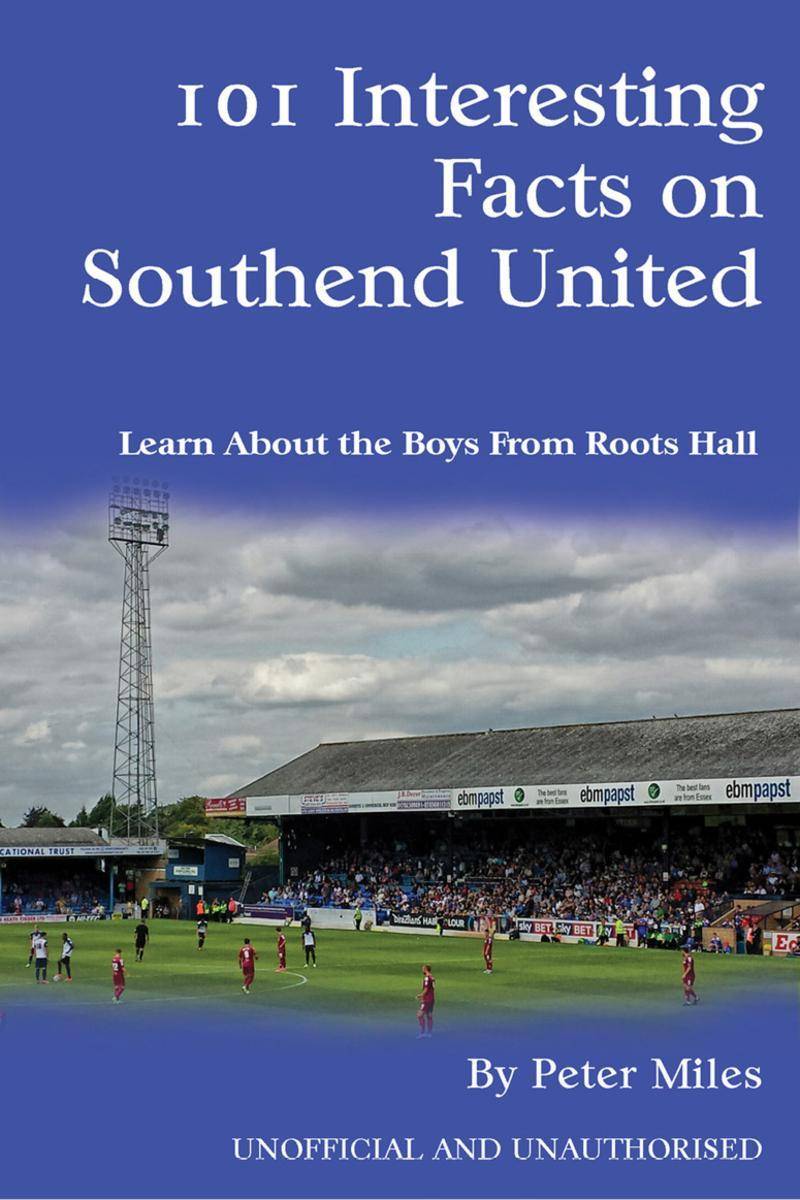
101 Interesting Facts on Southend United
¥24.43
Is Southend United your local football club? Are you a lifelong fan of the Blues or new to the touchline? Do you know all about the team's long and fascinating past, which began in the Blue Boar pub in 1906? Would you like to find out more? If you answered yes to any of these questions, you are certain to enjoy 101 Interesting Facts on Southend United, all about the boys from Roots Hall. Perfect for challenging your friends on match days or teaching your children about the history of your local football team. This tribute to the Southend United will tell you everything you ever wanted to know about the Blues, including all the memorable faces that have played a part in the team's wins and losses through the years. This is a must-have book for Southend supporters of all ages, so why not relive all those unforgettable moments from days gone by and gen up on your favourite football club.

Rita Ora Quiz Book
¥24.43
Are you a fan of Rita Ora? Have you followed her rise to fame from the release of her debut album through to becoming a coach on the UK TV show The Voice? Whether you are already familiar with the charismatic singer from London, or would like to find out more, you won't want to be without The Rita Ora Quiz Book. What character did Rita play in the 2015 film Fifty Shades of Grey? Who directed the music video for Rita's single 'How We Do (Party)'? How many BRIT awards was Rita nominated for in 2013? The answers to these questions and more can all be found in this exciting new quiz book. Containing both personal details and professional highlights, the 100 questions in this book will help you to get to know your favourite singer as well as providing a fascinating insight into the life of the chart-topping star. This is a must-have book for Rita Ora's rapidly increasing fan base and for anyone with an interest in the current music scene.

Ella Henderson Quiz Book
¥24.43
Are you a fan of Ella Henderson? Have you followed her meteoric rise to fame from her first X Factor audition through to the release of her debut solo album? Do you know all the lyrics to Ella's soulful songs and enjoy singing along? If you answered yes to any of the above, you are certain to enjoy this new quiz book all about the multi-talented singer-songwriter. Which Cher song did Ella sing at Boot Camp when she appeared on The X Factor? On what UK television show did Ella appear alongside Joey Essex and Al Murray during December 2014? Who directed Ella's music video for her song 'Yours'? Dip inside The Ella Henderson Quiz Book to find the answers to these questions and more. Packed full of facts about Ella's amazing career to date, this quiz book contains 100 questions about the emerging star including both professional highlights and personal details. This book is sure to appeal everyone who enjoys the music of Ella Henderson and would like to find out more about her.

Union J Quiz Book
¥24.43
Are you a fan of Union J? If so, you will probably be able to name the band members but how much else do you know about the four boys? Whether you are fully familiar with the lads from Union J, or would like to find out more about them, this quiz book is for you. With what record company did Union J sign after their time on The X Factor in 2012? Where did Union J first perform their single 'Carry You'? During what month in 2013 did Union J take over the Daybreak sofa at 7.50 am each morning for a week? The answers to these questions and more can all be found inside this new book. Packed with fun facts about all aspects of Union J, including many personal details, The Union J Quiz Book documents the boys' journey from four unknown artists into successful X Factor boy band and beyond. With 100 questions about your favourite group, this is a book Union J fans of all ages just won't want to be without.

101 Interesting Facts on Arctic Monkeys
¥24.43
Are you a fan of rock band the Arctic Monkeys? Have you followed their career from the early days when the band first gained recognition via the internet through to international success? Would you like to know more about your favourite indie band? 101 Interesting Facts on Arctic Monkeys gives you the chance to pick up some little-known trivia about popular band from Sheffield. What was the original line-up and who was the band's other lead singer with Alex Turner? What NME first did the Arctic Monkeys clock up in 2006? What offer did the Band repeatedly turn down during 2005? Find out the answers in this exciting new book along with many more fascinating facts. Packed with information including many personal details about the individual band members as well as up-to-date news on the Arctic Monkeys' recent projects. This book will appeal to anyone with an interest in contemporary music and is a must-have for all Arctic Monkeys' fans.




 购物车
购物车 个人中心
个人中心



